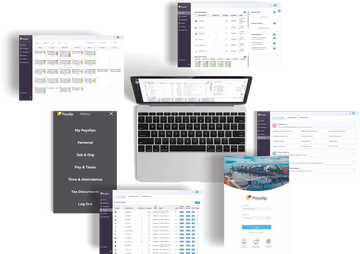Employee motivation is one of the most important factors at multinational organizations around the world. Motivated employees create a positive working environment which fosters superior customer service, better sales and improved productivity, adding value to a company’s bottom line. Motivated employees are also likely to be very engaged employees who will interact with communications from human resources departments in a positive manner.
It is therefore understandable, that human resources departments will show considerable interest in what the best ways might be to develop continuous and ongoing employee motivation. Many believe that employee compensation in the form of a salary is the best way to maintain a motivated workforce. But others believe this motivator has less effect or can even de-motivate staff. Instead, they place more value in other known motivators such as specific benefits, promotional opportunities and a company culture of empathy, recognition and job satisfaction.
In this article, we will examine salary and motivation and discuss the correlation to see if they are indeed two things that go hand in hand.
Is salary the big motivator?
A recognized study revealed that the average improvement to performance was greatest when money was motivating, at 30 percent. This far outperformed the other motivators it was compared to, including increased employee decision making and changes to the job role.
This will not come as any great shock to anyone, money is important, bills need to be paid and people have personal obligations that rely on them being paid accurately and on time every month. HR professionals certainly do not need to be reminded of the importance of the compensation systems and bottom-line earnings when it comes to job satisfaction and intrinsic motivation.
The connection between base salary and motivation is understandable really, if the person likes the salary they are on and it affords them a comfortable lifestyle , then there will be a strong motivation to continue with this lifestyle and maintain or improve these monetary rewards.
Many people will also feel that a high salary is a validation of their status and qualifications together with any effort and hard work they have put into their jobs in the past. Personal motivations form a great part of it too - higher salary enables you to afford more and better things and it is simply human nature to want this. Not everybody, however, is willing to put in the work to achieve this salary so motivation must be accompanied by actual job performance and results. Big salaries or pay increases are not handed out without careful consideration and unless you are quite lucky in terms of your timing, you will usually need to justify the reasons for the higher pay.
In line with this, it is essential to pay staff correctly and on time. Payroll software can be very helpful in guaranteeing this occurs, particularly for small business owners. Employees will always want their voices to be heard and they need to feel valued - a professional global payroll service that ensures they are paid on time and accurately every month goes a long way to reassuring them.
Recognition and bonuses
According to the 2019 Compensation Best Practices, 73 percent of organizations use a variable pay plan and incentive bonuses on top of base pay to reward hard work. Rather than expecting a higher salary alone to motivate a workforce, linking salary to job performance shows recognition of effort, improves transparency within the business and thus improves employee motivation.
By identifying and recognizing the triumphs of top performers and tying their achievements into the bigger picture of the company’s success, employees are proven to be more motivated to improve their job performance in the future. Recognition and bonuses have a positive effect when linked to performance and set out in a transparent way.
But there is also a new understanding that recognition can come in various forms and is not exclusive to a financial reward in the form of a one-off payment. Employees at different stages of their lives have different needs and some have come to place a value on other things that align to their personal goals- so it is a case that sometimes, money is not everything.
Company culture
Attitude, culture, empathy, work environment and a strong position on corporate social responsibility are increasingly becoming important to global employees, especially millennials and the younger generation. While salary, benefits and stock options will remain a significant factor in any final decision making, for some it is no longer the defining deal breaker.
Some people place a great deal of emphasis on their work ethic and professional focus- many are keen to apply these principles at a company they can feel a sense of pride for. They wish to be able to speak about their roles in a positive way and feel validated by the company they choose to work for. Company culture is sometimes valued over profitability and salary range.
A culture which promotes inclusivity and shared ideas along with a sense of a wider purpose will be valued a lot more than a standard office job. Individual employees and co-workers before profit has become more important, and the public perception of a company plays a role in employee engagement and retention.
Flexibility and awareness
This has been a year like no other for international employees at multinational companies - a global pandemic has decimated the economy and radically changed day-to-day working practices at organizations everywhere.
Business continuity has become the priority and the remote delivery of essential business services such as global payroll has become the new normal. all of this has resulted in a global workforce that may now be starting to reassess their life priorities while they adjust to new working conditions that may result in permanent changes.
This year may very well result in a shift in attitude around the importance of salary, bonuses, perks and benefits. It is very possible that employer flexibility, general awareness and understanding around the new challenges employees are facing today will be valued a lot more that they would have been in a normal working environment.
For now, office culture is pretty much on hold at money organizations and the traditional importance of salary and bonus associated with this office culture may no longer carry the same level of importance in a job description as it once did. For example, being able to choose your own remote working hours are being permitted to carry out your role in your home country or another international location, may be looked upon very favorably as the world changes due to the global pandemic of COVID-19.
Global employers and human resources department everywhere may find it very useful to open a dialogue with their employees and gauge their interests around specific remote working factors which they have now been forced to consider. efforts to help them adjust to this new normal and make their lives easier could be a key factor in employee retention in the long term. Global employees may now shift their thinking and start considering which companies are best equipped to facilitate a new lifestyle that now involves a reliance on the remote delivery of their daily duties.
Payslip and the employee experience
If the employee experience is becoming a more significant factor when it comes to motivation, then any innovation around technology tools that can help them do their jobs better also come into the equation.
Employees today like to work for modern and innovative organizations, who prioritize digital innovation when it comes to employee engagement. Payslip can help with such innovation in the form of our employee self service module.
This module puts employees in control of their personal and payroll data -enabling them to access, view and download relevant data anytime they want to on their preferred device. Employees feel empowered by this 24/7 access to their information which can also be used in their personal lives to support things like mortgage applications and year-end tax filings. Employees can access this information instantly from a secure cloud environment instead of having to send off an email query to a global payroll or human resources department and wait days for a response.
This is the kind of simple yet powerful digital innovation that can become part of a company culture that recognizes the employee desire to work in a digital environment that offers them control.




